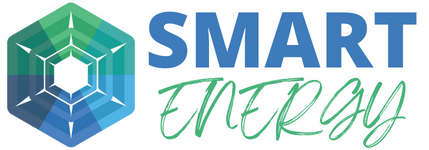Solar power is one of the most powerful natural energies on earth. It creates clean, sustainable energy and it's on the increase. The United States government and private industry are investing heavily in solar power.
This is a great time to go solar because U.S. laws and policies have changed to make it easier for homeowners and businesses to invest in solar power. The cost of installing a home or business-sized system (never mind the resale value) has come down significantly, thanks to tax incentives, programs like Solar-Ready Homes Initiative, and state energy savings mandates.
In this article we would like to talk about the benefits of solar power and why is such a good idea to go solar.
Solar energy is an inexhaustible natural resource that doesn't pollute the environment. It's environmentally friendly and renewable, unlike wind or hydropower, which are powered by finite resources. Sunlight has been fueling life on Earth for billions of years, producing all its food, wood, fiber and fossil fuels.
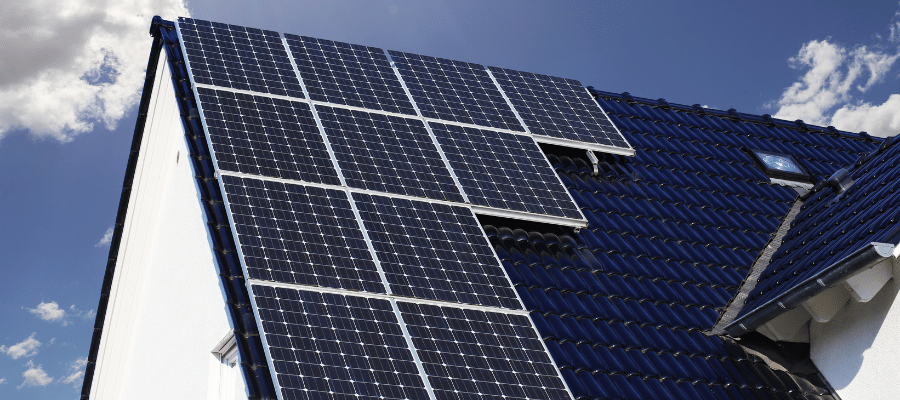
How does solar power works?
The sun is a vast, constantly moving source of energy. Its rays are not constant, nor are they always available. Sunlight varies in intensity with the seasons and the time of day.
The sun's energy is broken down into phases that are easier to use by humans. The different phases are easy to understand if you think about our experience with daylight switches in our homes, which turn lights on and off every few minutes depending on the time of day.
Thanks to photovoltaics you can produce electricity directly by moving air or water, or you can use solar energy in much the same way that fossil fuels are used. There are two main differences:
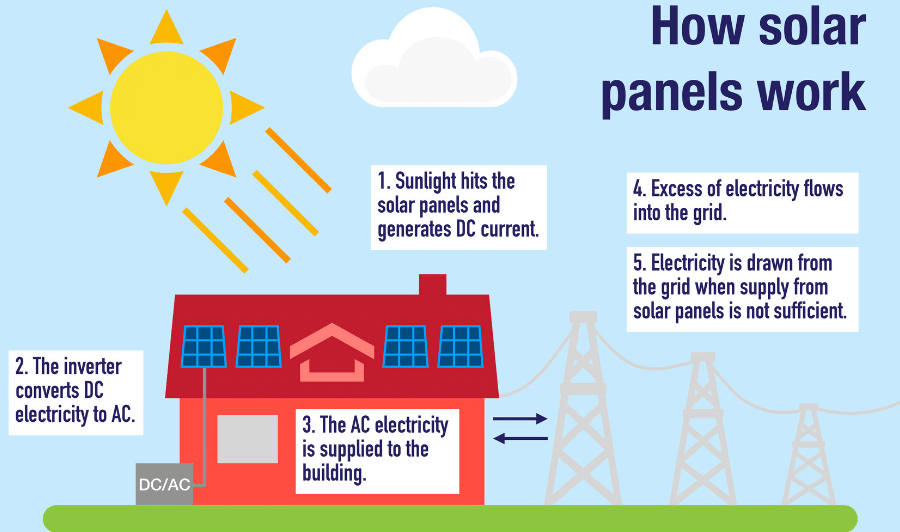
During the evaluation process, many factors come into play when deciding if solar power makes good sense for you. The first step is to understand what is "solar-friendly." As mentioned earlier, solar arrays can be placed on rooftops or ground-mounted free-standing systems. Close proximity to utility lines may require an expensive upgrade.
Solar radiation - the kind of energy from sunlight-is a clean, safe, completely renewable source of power. Unlike fossil fuels, which emit carbon dioxide and other pollutants when burned, solar energy is reusable and replenishable.
Thermal energy from the sun drives wind, ocean currents and evaporation. It is indirectly responsible for all weather. Without the sun's energy, there would be no human life on Earth. Plants convert solar energy into carbohydrates using photosynthesis.
You can concentrate solar energy with mirrors, dish-shaped solar cells or other types of collectors to make electricity. Solar power will always be renewable because it's all dependent on the sun's energy.
Currently, the technology exists to use this sun's energy in more than one way-in large scale, to make fuel cells for cars and trucks, and in small scale to heat water for showers and bathtubs. The best part is that there are no harmful byproducts from fossil fuels when it comes to solar power.
Why you should consider to go Solar?
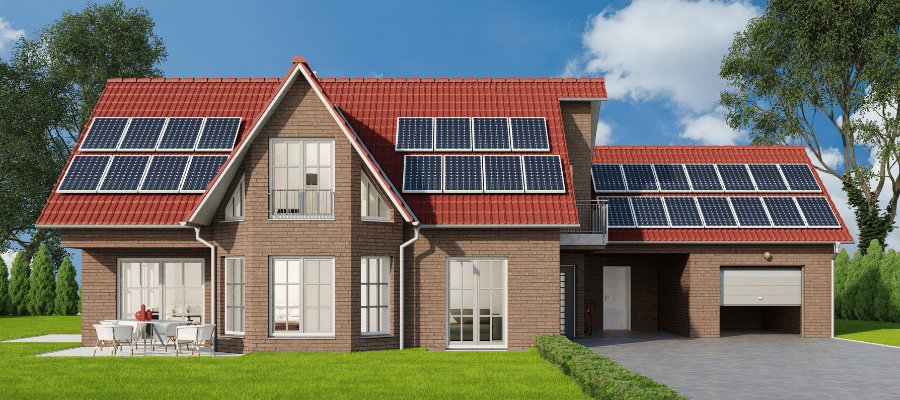
That being said, solar power is undeniably one of the most exciting renewable energy sources. It's clean, renewable, and totally free.
You can become energy independent without spending a lot of money or time. Your solar power system not only saves you money but also helps reduce greenhouse gases.
The benefits of becoming energy independent are great, specially if there is a blackout or a climate issue, you energy will keep going.
You can also save money by investing in solar power. Your savings will go even further if you use some of your own energy or sell it back to the utility company.
If you invest in a home solar power system, you may qualify for the federal tax credit of 30%. This credit is equal to 30% of the cost of purchasing and installing your home solar power system, up to $2500. The credit has no cap on how much can be claimed per household, but there are limits on total household income.
Your home equity also increases with installing a solar power system. It's an incentive offered by federal and state tax laws to homeowners who either install or plan to install solar panels. You can also get wholesale discounts for various types of solar panels.
Besides the strong financial incentives such as the 30% federal tax credit and rebates, there are other reasons why you should consider going solar:
There's no equipment to maintain. Maintenance is usually the biggest downside of certain energy resources, but that's not true with solar power.
How do Solar panels work?
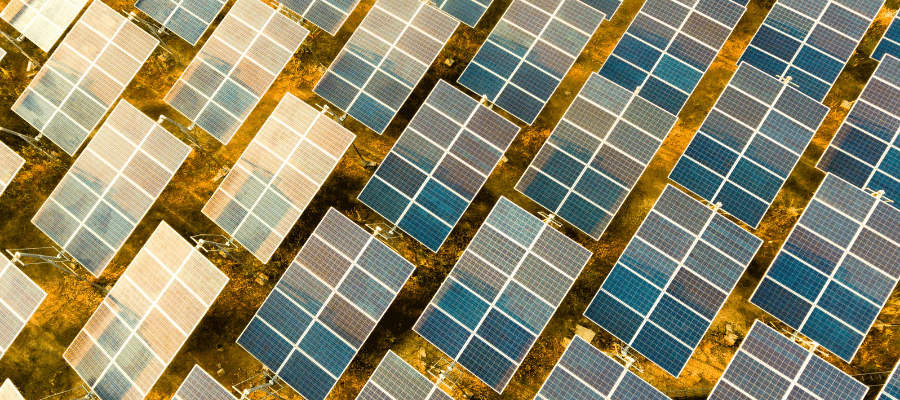
The most commonly used type of solar panel is crystalline silicon. It is made by using a process known as the "amorphous silicon" process. Crystalline solar cells are made with high temperatures, high pressures, and high voltages, which are very dangerous to humans.
Solar panels are made with low temperature, low pressure, and low voltage. The process involves depositing a thin film of semiconductor material on the surface of a substrate to make up the active photovoltaic material layer(s).
PV panels are made either by combing thin silicon wafers, or other materials like copper indium gallium selenide (CIGS), amorphous silicon (amorphous silicon) or multicrystalline silicon (monocrystalline).
The crystalline cells are manufactured by injecting plasma at high temperatures into the silicon material. The plasma is usually composed of fluorides. These cells are then cooled to about 1500 degrees Celsius by a flowing gas of argon, helium, hydrogen, neon, oxygen, nitrogen or carbon dioxide.
Solar energy systems use solar panels to convert the sun's energy into usable electricity. Solar photovoltaic (PV) systems use solar panels that contain a large number of silicon cells made from semiconducting materials like silicon and silver.
Solar cells create energy when light strikes their surface and excites electrons to a higher energy level. The electrons move to an area of the cell where they are collected by conductors and can flow as an electrical current, which is then fed into the power grid.
Solar panels convert sunlight into power and then the power is transferred into electric current and distributed to electrical grids. The panels then convert sunlight into energy.
When you use electricity from your solar power system, the electricity is sold to your utility company for a fee. The utility company then charges you a different amount of money than what they received for the electricity from your solar panel.
Solar rebates and incentives
The federal solar tax incentives for residential and commercial systems are available through the end of 2016. The tax credits and expenditures for renewable energy technologies such as solar energy (PV, or photovoltaic; wind, or wind power; geothermal; and biomass fuel boilers) expired on Dec. 31, 2016.
The solar tax incentives were:
The Act of 2008 was passed by Congress and signed into law by Ronald Reagan on October 9, 2008 under Public Law 110-245.
How long does it takes to go solar?

The average installation time for a solar electric system is between four to seven months from the day it is ordered to be installed. It takes between one and two months from the time that you reserve your solar electric system to the day that your installation date is set.
You can use a third party installer, or you can do it yourself. In order to do it yourself, first you will need to figure out where you want your system installed and what type of panels and mounting area you want them on.
In summary going solar is the best source of alternative energy. It's clean, renewable, and totally free. You can also see financial benefits with low maintenance, no fuel costs, and less pollution.
You will always have an energy source when the sun doesn't shine. The main parts of a home solar installation consist of: solar panels, wiring, and inverters.
You will first need to decide on the type of system you want for your home. You should think about how much electricity you use and how much you would like to save.
If you want to go solar , first you will need to choose a solar company to do the installation. Depending on your solar situation, you will need a professional to design and install your system.
Solar Energy has been increasing in popularity as people look for alternatives sources of power as well as ways to lessen their impact on the environment. There are several companies that you can choose from when it comes to going Solar. It's important to do some research about each one before deciding which Solar Energy Company is right for you.
Is solar power as good as electricity?
According to the International Energy Agency, the world will add more solar power this year than it does natural gas, or any other form of energy. In fact, for five years in a row, the world added more capacity to solar power than it did power from any other source.
In 2013, around 7% of electricity came from renewable sources such as wind and solar. The countries that have the most renewable energy include Spain and China with 23% and 8%, respectively.
